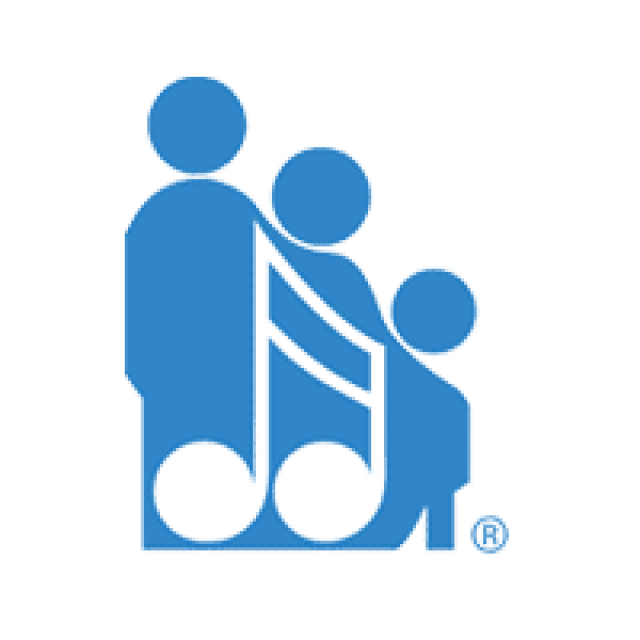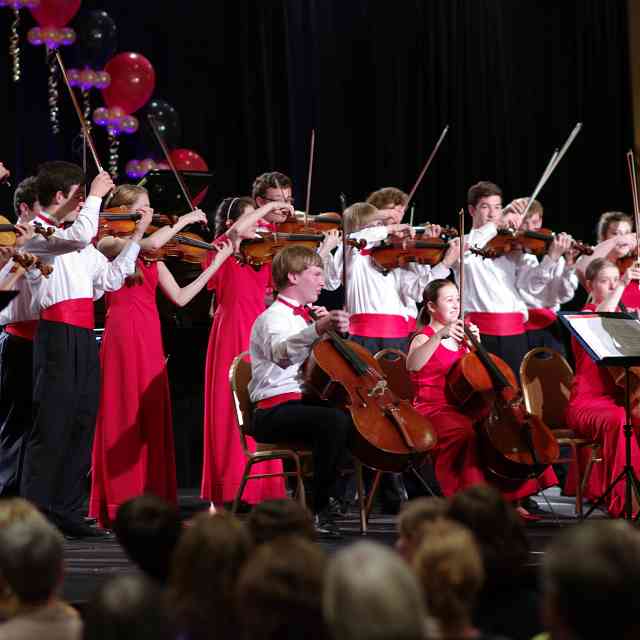By Alicia Randisi-Hooker
About eight years ago, an eight-year-old boy came into my studio with his mom, who quietly informed me that her son was very shy and has trouble sometimes with eye contact, and that he is the younger sibling to a sister with Down Syndrome. “He may not make eye contact, or answer you right away,” she said. At first, he expressed reluctance. There was a point when he wanted to quit. But at age ten, he sent me a card expressing his gratitude that he had kept going. As the mother of two rather “outside the box” children myself, I was glad to have this wonderful family in my studio, who had come to me at the recommendation of another former student with autism.
Through the first year of lessons, it was sometimes hard to tell if he was enjoying his cello, but he and his mom were dutiful in lesson attendance and diligent in their daily practice. Although a non-musician, his mom was a meticulous, thorough note taker, and a consistently positive support at home. When Alex completed his first Twinkles, we celebrated with photos and smiles all around. The growth continued, and included much praise from me, and many thank you cards, gifts of plants, chocolate, and tokens of appreciation from his mom. This quiet, thoughtful boy grew into a highly intelligent young man of utmost integrity, who has led our Youth Symphony Orchestra’s cello section for two years now, has won honors in competitions and All-State, and is completing his junior year in high school with plans to major in pre-medicine and minor in music. The staff of the orchestra acknowledges him as a servant-leader, who is consistently kind, humble, generous to his peers, and positive in his outlook.
His latest project was to found The Friendship Club. This group brings together young people who are neurodivergent with neurotypical friends and others to teach, guide, and mentor them in music, creative projects, and academics in a weekly after-school program. He took it upon himself to create this as a way to serve a population that often feels a lack of belonging. He regularly volunteers for events benefiting children and youth with special needs. He is a beacon to the bright future I see!
I share his story because he is just one of several students in my studio who care deeply about service to others, and who may have learning differences and neurodivergent designations, both diagnosed and undiagnosed. A highlight of the SAA Leadership Summit in March 2025 was attending Christine Wilson Goodner and Tamara Gonzalez’s session, “Unlocking the Strengths of Neurodivergent Learners.” As a teacher of several of these beautiful students, the session spotlighted the “Bright, Bold Future” of Suzuki Talent Education around the world, especially for our students who have special challenges. As teachers, we embrace the philosophy of Dr. Suzuki that all children can learn to play musical instruments at a high level, and that by being involved in a community of other students and like-minded teachers, students gain a sense of belonging that few other activities can offer. While sports and teams can play a vital role in a child’s physical, emotional, and mental development, there is nothing quite like the way in which musical study addresses neurodivergent learners, while also fostering brain development, critical thinking, and problem-solving skills. Music teaches us the kind of sensitivity to nuances in communication that are so sorely needed in our increasingly complex world.
The development of a “good ear” and sensitivity to tone, following instructions, following non-verbal cues in Group Class, and taking turns leading, following, and deep listening, are life skills. So many of us listen so that we can respond or come up with a pithy reply. Suzuki education promotes more than this . . . it’s life training to not just “hear” what someone is saying (or playing!) but to listen deeply for subtlety, for beautiful tone, and for the deeper meaning behind the words being spoken and the music being played or performed. The possibility to be truly connected to your fellow music students, and by extension, to your peers, your parents, and other caring adults empowers each child, no matter their individual characteristics or differences. The implications for society as a whole are enormous as we learn together to approach all people with open hearts, curiosity, and confident joy. Through music, our students and parents gain a sense of connection and community that reaches around the globe.
With the advent of technology that connects us in ways we couldn’t have imagined even a decade ago, we have even greater possibilities for connection and community. Online teacher training, committee meetings via Zoom and other platforms have allowed us to connect and build a life-long learning community and to meet each other when in-person events and meetings aren’t available to us. When I need help with a problem or just need to “unload,” the Suzuki teacher’s forums on Facebook have been a safe place to crowd-source solutions and share ideas, both pedagogical and psychological. The ability to share so freely and without judgment has been a great gift to so many of us.
Practice apps like the “Wesley” practice app, Tonebase, Practice Mind, and many others, in addition to YouTube and streaming the recorded Suzuki repertoire, have all added another rich dimension to my own teaching that I never thought possible. They give me hope for a positive use of technology in my studio practice. Because of these tech applications, we have access to an ever-expanding knowledge base and to each other’s expertise. It’s another way to forge meaningful connections to each other and to our world, and has created greater awareness of populations that may want to give their children the gift of music lessons. Technology in service to greater, more meaningful connection, and as a tool for learning, is so much more useful for us than as a tool for division! As a wise friend once quipped, “Technology can be an excellent servant, but makes a lousy master.” The things that connect us can make our community even stronger when used wisely and well.
Our focus as teachers on well-being and fostering of life-long learning has helped our students develop into creative problem solvers who will impact their communities and will continue to have a ripple effect for generations to come. Our work is noble and broad in scope, encompassing diverse populations around the world. In my forty years as a teacher, I’ve been fortunate to stay in touch with many of the families I started at the beginning of my career, as I’m sure many of you have. We don’t often think about our impact as we go about the business of the day, but I see it and I sense it. I believe with all my heart that, whatever challenges lie ahead, we have the spirit of Dr. Suzuki to guide us, to help us stay connected and engaged, and that the future is far brighter than we can imagine if we stay the course, keep sharing ideas, evolving as an organization and growing as individuals. Students like Alex give me hope, joy, and enthusiasm for what is to come. Let’s do this!
Register for the Annual General Meeting!
Jul 19, 2024







